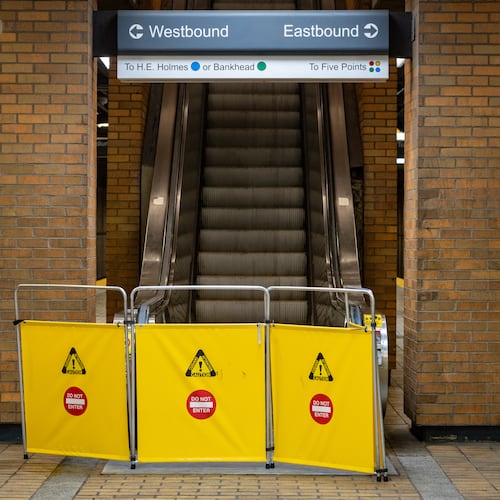Lot # 77 in the Crystal Cove Shores subdivision sits at the corner of Crystal Cove and Thunder trails in a neighborhood of mixed incomes and housing stock on the shores of Lake Lanier in Forsyth County.
A squat, decaying cinder block pump house stands in the middle of the less than half-acre plot that has become a battleground between neighborhood residents and a non-profit group that says it wants to build a community center to serve those who need help repairing troubled lives.
Opponents say the group, Bridgepoint Community Networks Inc., really wants to build a church, not a community center. A church on such a small lot, besides violating county zoning, would create a traffic hazard and upset the community’s residential feel, they add.
Opponents also resent the group’s characterization of Crystal Cove as troubled and riddled with drugs. They say that is a ploy to get county support for the project.
“Between 2004 and 2009, there wasn’t a single 911 call for drugs in Crystal Cove,” says Jeff Oursler, one of the more outspoken neighborhood opponents.
Pastor Bill Levin, who heads Bridgepoint, says his figures, gathered from open records requests,and conversations with neighbors during seven and a half years of counseling in the community, tell a different story. There were more than 3,100 dispatches to Crystal Cove from 911 calls from 2004 through 2008, according to Levin.
“Just that alone would appear excessive for a community of approximately 200 homes,” he said. In his conversations with families, Levin says he’s found “scores of broken children whose live have been upside down. We are simply trying to help them.”
The dispute dates to 2008, when Bridgepoint made its first permit application. That and a second application were tossed for technical reasons. The group’s third application is scheduled to go before the planning commission this month, and the county commission after that.
The county planning department determined the planned building is not a church and recommended the application move forward.
“The [opponents] have switched like a chameleon about why they oppose it,” said Levin. “First they said it was going to be a drug rehab center. Now they say it’s going to be a church. It was never going to be a rehab center, and it’s not going to be a church.”
In the end, say both sides, it will be a matter of whose argument the commission believes. “They [the group] is not admitting it’s a church to government people,” said neighborhood opponent Nancy Bustle. “But on multiple religious websites, it’s represented as an organic church. The bottom line is they talk out of both sides of their mouth.”
Ethan Underwood, the attorney representing Bridgepoint, said comments the group has made about “growing the Church” aren’t about a building, they’re about building a following.
“You can’t take a theological phrase and extrapolate it into a land use term,” he said. “The proposed use is not a ‘church’ under the development regulations, it’s a community center.”
In his conversations with families, Levin says he's found "scores of broken children whose live have been upside down. We are simply trying to help them.”
About the Author
The Latest
Featured

